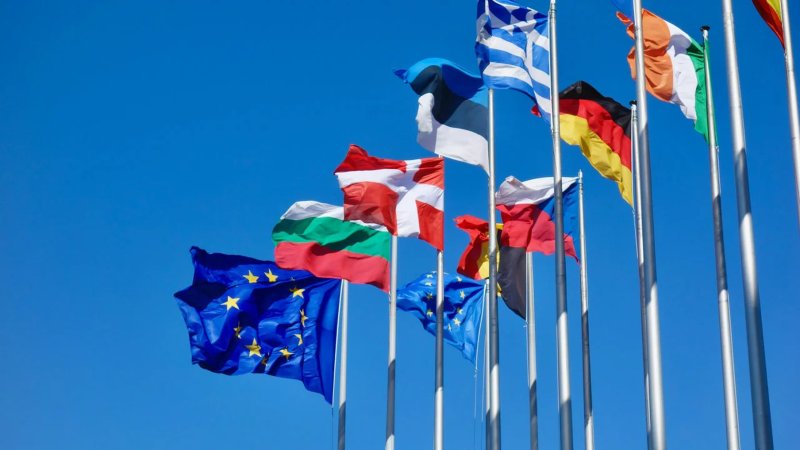Saudi passport holders may soon be able to travel to Europe without needing a visa. The European Union (EU) is working on a plan to remove the Schengen visa requirement for citizens of Saudi Arabia, according to EU Ambassador Christophe Farnaud.
The Ambassador said that Saudi nationals will “soon” be allowed to enter the Schengen Area without applying for a visa. However, he did not give an exact timeline or say how far along the process is.
Visa-free travel is being discussed, but no date yet
For now, Saudi citizens still need a Schengen visa to travel to most European countries. But the EU says it wants to make travel easier and is moving toward full visa exemption. This would mean Saudi passport holders could enter the Schengen Zone without any visa at all.
Until that happens, Saudis can continue to use the current, easier visa system that began in April 2024. Under these new rules, Saudi nationals can apply for a five-year multiple-entry Schengen visa, allowing them to visit Europe many times without needing a new visa each time.
However, even with a long-term visa, travelers must follow the 90/180-day rule. This means they can stay in the Schengen Area for up to 90 days in any 180-day period.
Schengen visa for Saudi Arabia explained
The Schengen visa is a type of short-term visa that allows travelers from Saudi Arabia to visit countries within the Schengen Area—a group of 29 European countries (25 EU Member States and 4 non-EU countries) that have removed internal borders for easier travel.
With a Schengen visa, Saudi citizens can travel freely between these countries for up to 90 days within any 180-day period, whether for tourism, business, or visiting family and friends.
According to the Migration and Home Affairs, Saudi travelers are already some of the most frequent visitors to the Schengen Zone.
What about other Gulf countries?
At the moment, the United Arab Emirates (UAE) is the only Gulf country whose citizens can enter the Schengen Area without a visa. But the EU has made it clear that it wants to offer similar visa-free access to other Gulf countries, including Saudi Arabia.

All Schengen visa exemptions
As of now, citizens from the following over 60 countries and territories can travel to the Schengen Area visa-free:
Europe (non-Schengen but exempt)
Albania (biometric passports only)
Bosnia and Herzegovina (biometric passports only)
Georgia (biometric passports only)
Moldova (biometric passports only)
Montenegro (biometric passports only)
North Macedonia (biometric passports only)
Serbia (biometric passports only)
Ukraine (biometric passports only)
San Marino
Vatican City
Andorra
Monaco
North America
United States
Canada
Mexico
South America
Argentina
Brazil
Chile
Colombia
Costa Rica
El Salvador
Guatemala
Honduras
Nicaragua
Panama
Paraguay
Peru
Uruguay
Venezuela
Asia-Pacific
Australia
New Zealand
Japan
South Korea
Malaysia
Singapore
Taiwan (passport must include an ID number)
Hong Kong SAR
Macao SAR
Israel
United Arab Emirates (UAE)
Caribbean & other regions
Antigua and Barbuda
Bahamas
Barbados
Dominica
Grenada
Saint Kitts and Nevis
Saint Lucia
Saint Vincent and the Grenadines
Trinidad and Tobago
Seychelles
Mauritius
Georgia
Timor-Leste (East Timor)
ETIAS is coming soon
Even for visa-exempt countries, starting in late 2025, most travelers will need to apply for ETIAS — the European Travel Information and Authorization System.
It’s not a visa, but a pre-travel authorization (similar to the U.S. ESTA).
ETIAS will be required for visa-free travelers.
It involves a quick online application, security check, and a small fee (around €7).
Once approved, ETIAS will be valid for 3 years or until your passport expires.

If you're from a country like the U.S., UAE, Japan, Brazil, or most of South America, you’re already visa-exempt for short trips. However, you’ll need to keep an eye out for ETIAS starting soon.
Who still needs a visa?
If your country is not on the exemption list, you need to apply for a Schengen visa before entering the zone. This currently includes Saudi Arabia, India, Pakistan, Nigeria, China, Indonesia, and others — though Saudi Arabia may soon join the exemption list, based on recent EU announcements.








